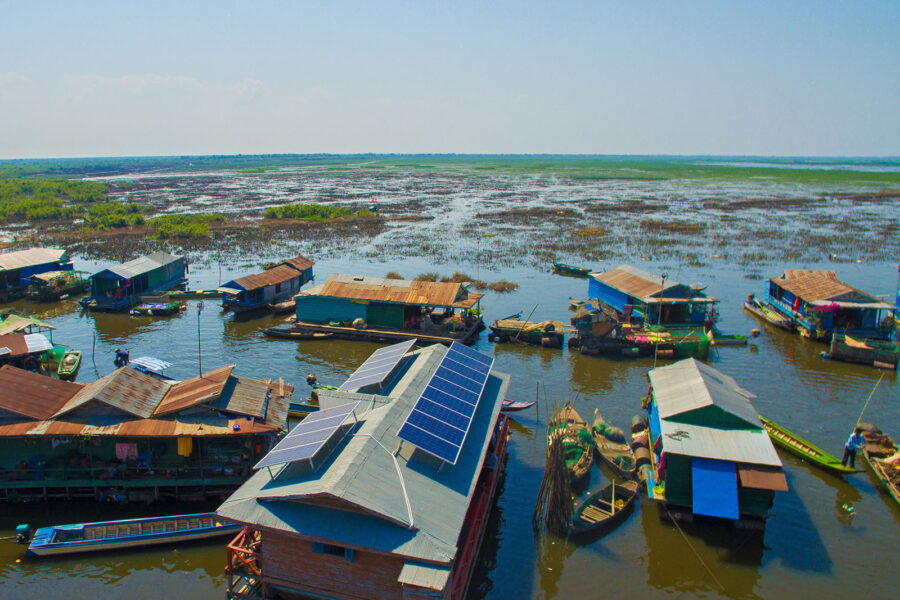Energy Transition Special Focus: 2022
The recent IPCC report on the impacts of climate change paints a devastating picture of the consequences of inaction. Over the last year, politicians, responding to public sentiment, have shown greater recognition of the urgency and been vocal in their commitments to act. And yet, constructive action still lags far behind what is required to avert catastrophe.
Decarbonising our energy systems is the most critical step to getting back on a sustainable path. This special focus examines the obstacles and offers solutions to unlock progress.
Photo of solar photovoltaic panels on a floating community in Cambodia by UNDP Cambodia.











